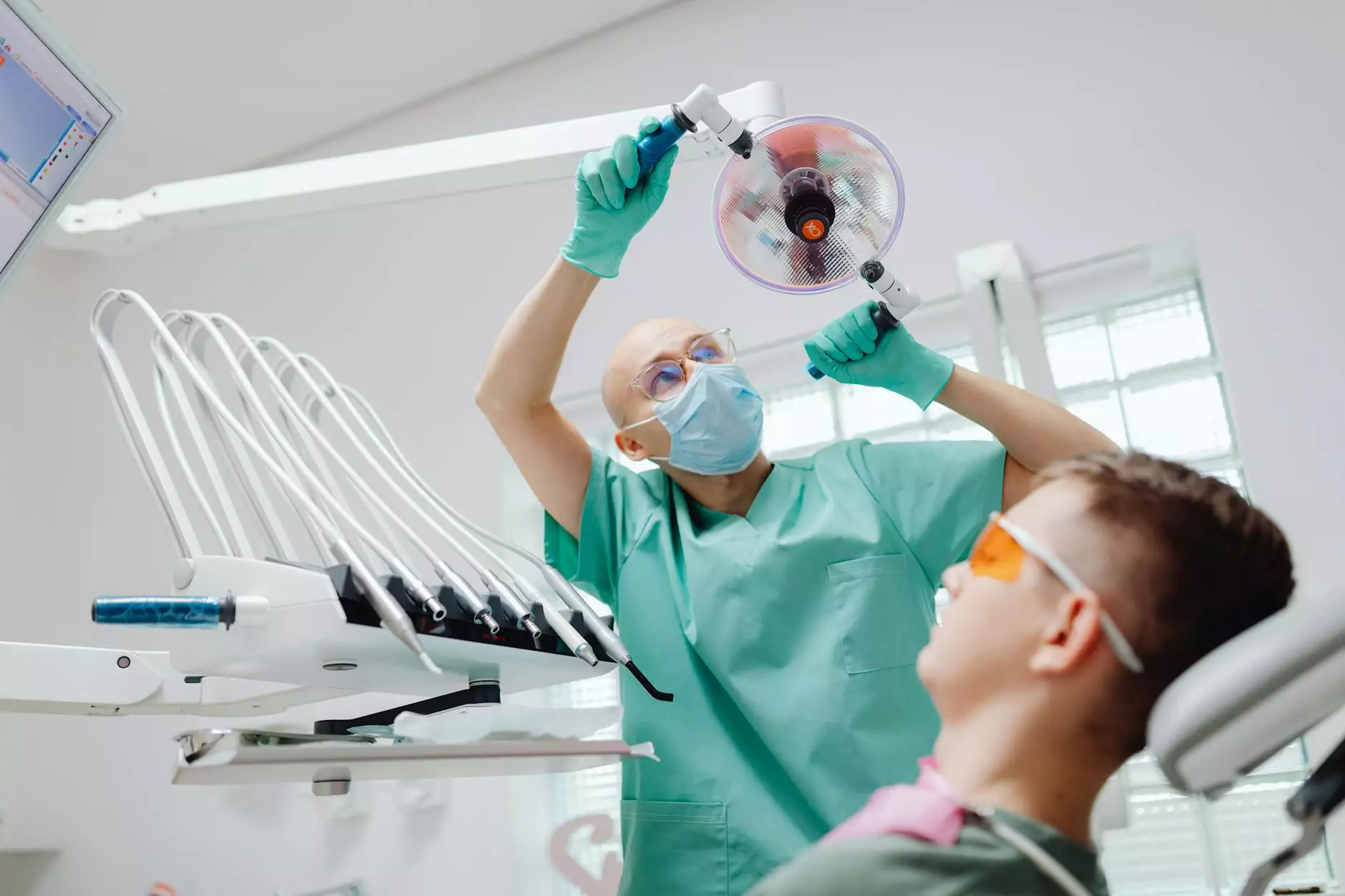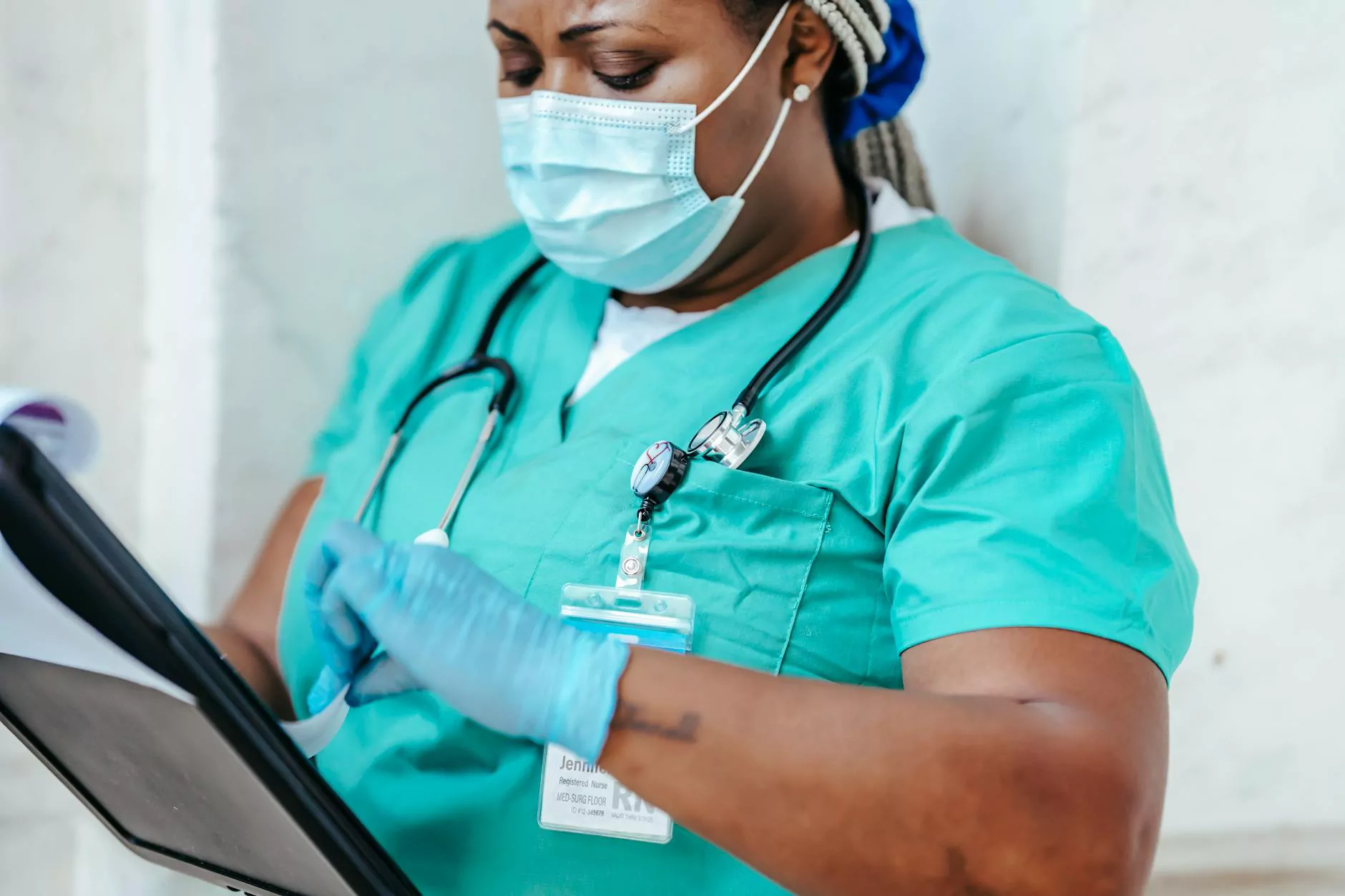The Essential Role of a Lung Doctor in Modern Healthcare

In an era where respiratory health is becoming increasingly significant, the role of a lung doctor is paramount. Whether you are an athlete, a casual fitness enthusiast, or someone with an existing health condition, understanding the expertise and the contributions of lung specialists can certainly enhance your well-being and performance.
What is a Lung Doctor?
A lung doctor, professionally known as a pulmonologist, specializes in diagnosing and treating respiratory disorders. This includes a variety of conditions affecting the lungs and the airways, enabling individuals to breathe easier and live better. Their expertise is crucial for managing chronic diseases such as asthma, COPD (Chronic Obstructive Pulmonary Disease), and lung infections.
Why Consult a Lung Doctor?
Understanding when to consult a lung doctor can often be the difference between managing a condition effectively and allowing it to escalate. Here are some compelling reasons to seek the assistance of a lung specialist:
- Persistent Cough: A cough that lasts longer than a few weeks is a warning sign of possible underlying issues.
- Breathing Difficulties: Experiencing shortness of breath with minimal exertion may indicate a serious condition.
- Chronic Illness: Individuals with pre-existing health issues, such as asthma or allergies, should regularly consult a lung doctor.
- Exposure to Harmful Substances: Continued exposure to pollutants, smoke, and other harmful substances can lead to serious respiratory conditions.
Common Conditions Treated by Lung Doctors
Lung doctors address a variety of conditions, working diligently to tailor treatment plans to individual circumstances. Some of the most common conditions include:
1. Asthma
Asthma is a chronic condition that affects the airways, causing them to become inflamed and narrowing them, leading to difficulty in breathing. A lung doctor can help manage symptoms and create an effective management plan.
2. COPD
Chronic Obstructive Pulmonary Disease is another prevalent condition that obstructs airflow and makes breathing difficult. Fortunately, with proper intervention, including medications and lifestyle changes, its impact can be minimized.
3. Lung Cancer
With early detection and modern medical advances, lung cancer can be treated more effectively than in the past. Lung doctors play an essential role in screening and management strategies.
4. Pneumonia
Pneumonia is an infection that inflames the air sacs in one or both lungs. A lung doctor is vital for overseeing the treatment and ensuring a swift recovery.
5. Interstitial Lung Disease
This group of diseases affects the interstitium (the tissue and space around the air sacs of the lungs). Accurate diagnosis and tailored treatment plans are essential for managing these conditions.
Diagnosis and Treatment Procedures
Upon visiting a lung doctor, patients can expect a series of evaluations to pinpoint their respiratory conditions. Common diagnostic methods include:
- Chest X-rays: To visualize any abnormalities in the lungs.
- CT Scans: Providing detailed images for better evaluation.
- Pulmonary Function Tests: Assessing the breathing capacity and efficiency of the lungs.
- Bronchoscopy: Allowing direct visualization of the airways and the possibility of obtaining biopsies.
The Importance of Preventive Care
Preventive care plays a significant role in respiratory health. Consulting a lung doctor not only helps manage existing conditions but can also prevent future complications. Here are some preventive measures:
- Regular Check-Ups: Regular visits to your healthcare professional can help monitor any changes in your respiratory function.
- Health Screenings: Screening for lung diseases can catch potential issues early.
- Vaccinations: Staying updated with vaccines like the flu shot and pneumococcal vaccines can prevent infections.
- Healthy Lifestyle Choices: Avoiding smoking, exercising regularly, and maintaining a healthy diet can positively impact lung health.
Physical Therapy and Breathing Exercises
In addition to medical treatment, many lung doctors recommend physical therapy and breathing exercises as integral parts of managing respiratory health, particularly for individuals suffering from chronic lung conditions. Here are some benefits:
1. Enhanced Lung Function
Physical therapy can help improve lung capacity and efficiency through specific exercises designed to strengthen the respiratory muscles.
2. Increased Physical Activity
Encouraging regular physical activity is essential, especially for those with respiratory impairments. Tailored exercise programs can boost stamina and reduce fatigue.
3. Improved Quality of Life
By fostering better breathing techniques and encouraging physical activity, individuals often experience enhanced overall health and a better quality of life.
Finding a Qualified Lung Doctor
When deciding to see a lung doctor, it's important to select a qualified specialist. Here are some tips to guide you:
- Check Credentials: Look for board-certified pulmonologists with relevant qualifications and experience.
- Read Reviews: Patient reviews and testimonials can provide insight into a doctor’s reputation and practice style.
- Consider Location and Accessibility: Choose a provider that is conveniently located and offers accessible appointment options.
- Consult Your Primary Care Physician: They can provide referrals to reputable lung specialists.
The Role of Health and Medical Practices in Lung Health
Health and medical practices, such as those offered by Hello Physio, play a vital role in promoting lung health. Through comprehensive patient care and tailored treatment plans, these practices ensure that patients receive the support they need to manage their respiratory conditions effectively.
Programs focused on sports medicine and physical therapy can augment the treatments provided by lung doctors, promoting not just recovery but also proactive health management. Whether it’s through guided exercises or education on proper breathing techniques, these approaches empower patients to take charge of their health.
Conclusion
Consulting a lung doctor is an essential step in maintaining and improving your respiratory health, particularly in today’s environment filled with potential pollutants and health challenges. With their expertise, patients can manage chronic conditions, improve their lung function, and enhance their overall quality of life.
By prioritizing lung health through regular consultations, preventive care, and adopting a proactive approach to physical therapy and lifestyle changes, individuals can ensure they are on the path to better breathing and overall wellness. Don’t hesitate to reach out to a lung doctor today and take the first step towards a healthier future!









